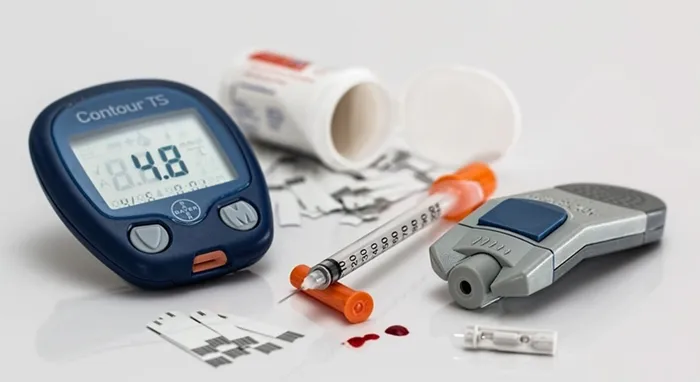Tips for managing diabetes during the pandemic

According to Dr Daksha Jivan, a physician and endocrinologist at the Charlotte Maxeke Johannesburg Academic Hospital, the complications for patients with diabetes who test positive for Covid-19 can be extremely serious. Picture: File
The effect on chronic disease management, either postponed or cancelled, can be serious for people with pre-existing medical conditions such as diabetes, heart disease and asthma, as they are more vulnerable to becoming severely ill with the Covid-19 virus.
According to a simulation model using multivariate regression analysis, the duration of lockdown has been shown to be directly proportional to the worsening of blood sugar control and diabetes-related complications.
The evidence shows that poor blood sugar control and the presence of organ dysfunction predisposes a person infected with Covid-19 to a far greater risk of death than those without. That is why it is extremely important to achieve – as well as maintain – good blood sugar control during this pandemic.
Tips for managing diabetes during the pandemic
- Continue taking your diabetes medicines and insulin as usual.
- Test your blood sugar and keep track of the results, as directed by your healthcare provider.
- Make sure that you have at least a 30-day supply of your diabetes medicines, including insulin.
- Follow your healthcare provider’s instructions if you are feeling ill.
- Call your healthcare provider if you have concerns about your condition, or feel sick.
- If you don’t have a healthcare provider, contact your nearest community health centre or GP practice.
What are some of the known increased risks for people with diabetes?
“People living with diabetes are at an increased risk of a more severe illness if they contract Covid-19 and two recent studies from the UK have reported that the risk of in-hospital death is higher when the diabetes is less well controlled, and their HBA1c test result (a measure of blood sugar levels) is greater than 7.5%,” says Dr Zane Stevens, a specialist physician and endocrinologist at the Christiaan Barnard Memorial Hospital in Cape Town.
“This is most likely because high sugar levels weaken the immune system which is then damaged further by the coronavirus. People with diabetes often have circulatory problems, while those who are obese or overweight may experience an exaggerated inflammatory response, or swelling of the tissues, which also has serious implications for the patient.”
According to Dr Daksha Jivan, a physician and endocrinologist at the Charlotte Maxeke Johannesburg Academic Hospital, the complications for patients with diabetes who test positive for Covid-19 can be extremely serious. “They can include coma resulting from very high blood sugar, more severe respiratory illness and pneumonia, disturbance of bodily functions, multi-organ failure, as well as heart attacks, strokes, and pulmonary embolism. There is a four-fold increased likelihood that diabetics will need ICU admission and ventilation if they test positive for coronavirus.”
Jivan says that there is a vicious cycle at play: “The virus causes higher blood sugar and higher blood sugar worsens the body’s immune response.”
Keeping safe during the pandemic – there are positive things you can do!
“General safety measures such as isolation, hand washing, and wearing masks is even more important for people with diabetes due to their higher risk of severe disease and death,” says Jivan.
“It’s also important to note that a healthy diet can help lower high blood sugar levels.
“Avoid sugars and refined carbohydrates, exercise regularly and avoid alcohol and smoking. We urge patients to adhere to their medication schedule, continue home glucose monitoring, have routine blood tests done, and always keep a month’s worth of medication on hand,” says Jivan.
Related Topics: